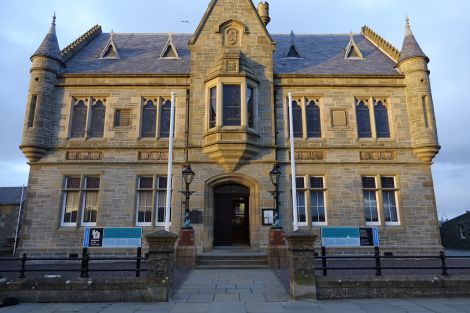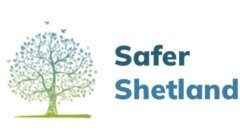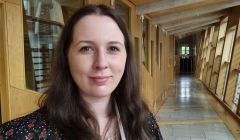Council / SIC doing well in drive to tackle inequalities, meeting hears
SHETLAND Islands Council is getting to grips with tackling inequality in the isles, according to the local authority’s education and families committee chairman.
Councillor George Smith’s assessment came after the committee heard about a range of initiatives in place to combat inequalities and child poverty in Shetland at a meeting on Monday.
Director of children’s services Helen Budge highlighted two examples in particular – giving out free school meals during the holidays and providing free sanitary products for youngsters.
The council developed a pilot project in the North Isles and Lerwick to support families who were eligible for free school meals during the school holidays in October and Christmas last year.
The pilot involved 82 families – including 140 children – across the Lerwick and North Isles schools.
Families of eligible children were initially provided with a £25 voucher per child to cover the October holiday period. The project has received positive feedback from families.
The SIC has also been providing free access to free sanitary products in all schools and other settings.
During the pandemic the council has also been posting the items out to those who need them.
“We have seen an increasing number of our young lasses that are picking that up,” Budge said. “It really has been a huge success.”
The two examples were among a handful of case studies included in a lengthy annual report on Shetland’s integrated children’s services plan.
Smith said the plan could be used as a “reference point” by councillors in the months ahead, saying he felt the local authority was now “getting to grips” with tackling inequalities.
Similar themes cropped up in relation to an annual report on child poverty that was also presented to the committee.
Quality improvement officer Lesley Simpson said she believed child poverty was likely to have become more prevalent in the advent of the coronavirus pandemic.
Become a member of Shetland News
Councillor Amanda Hawick said that an increasing number of constituents have reported to her increased financial difficulty over the last number of months.
“In this day and age in 2020 it’s absolutely heartbreaking that we still have to speak about child poverty,” she added.
The Scottish Youth Parliament’s Shetland member Leighton Anderson asked what could be done to tackle stigma relating to poverty.
“There’s been some really good work that had happened during the lockdown,” Simpson said.
But she warned that people may now been suffering from “a bit of compassion fatigue” – with stigma possibly on the way back.
Lerwick member John Fraser said it would be a “sad indictment” of the local community if this was the case.
He wondered if firmer objectives could be set around child poverty, but Smith said: “I’m confident that your request has already been taken on board by the officers”.
Smith, meanwhile, said he felt tackling stigma was “everybody’s responsibility” across services and organisations.
South Mainland member Robbie McGregor also said he was “distressed” by the presence of child poverty in the isles.
He made one plea – to end any stigma attached to receiving free school meals as a result of the means of identification.
Concerns have been raised that in the Anderson High School people accessing free school meals have to show a card.
Smith, meanwhile, concluded the debate on child poverty by saying that he has been involved in the council as an officer or an elected member for nearly 40 years, and going back decades people were less inclined to discuss the issue.
He encouraged councillors to keep the issues in mind when setting next year’s budget in the coming months.
“Let’s not forget about some of discussions today,” Smith said, encouraging his peers not to treat the issue as a “one-day wonder”.
The work of the multi-agency Anchor project was also praised during Monday’s lengthy meeting, which ran on for more than three hours.
It was set up in 2018 to focus on the value of family-led problem solving and early intervention.
During the first year of direct activity, the project supported a total of six families from the Sound Primary School catchment area.
Things that families needed help with included support to claim benefits and free school meals, access to employment, support with household or family relationships, and parenting support.
One project undertaken with the Anchor team was to increase the number of families at Sound applying for free school meals.
It increased the uptake from 21 to 30, which in turn could lead to an increase in pupil equity funding coming Shetland’s way from the Scottish Government.
The funding is calculated by the number of pupils receiving free school meals.
Become a member of Shetland News
Shetland News is asking its many readers to consider paying for membership to get additional features and services: -
- Remove non-local ads;
- Bookmark posts to read later;
- Exclusive curated weekly newsletter;
- Hide membership messages;
- Comments open for discussion.
If you appreciate what we do and feel strongly about impartial local journalism, then please become a member of Shetland News by either making a single payment, or setting up a monthly, quarterly or yearly subscription.










































































